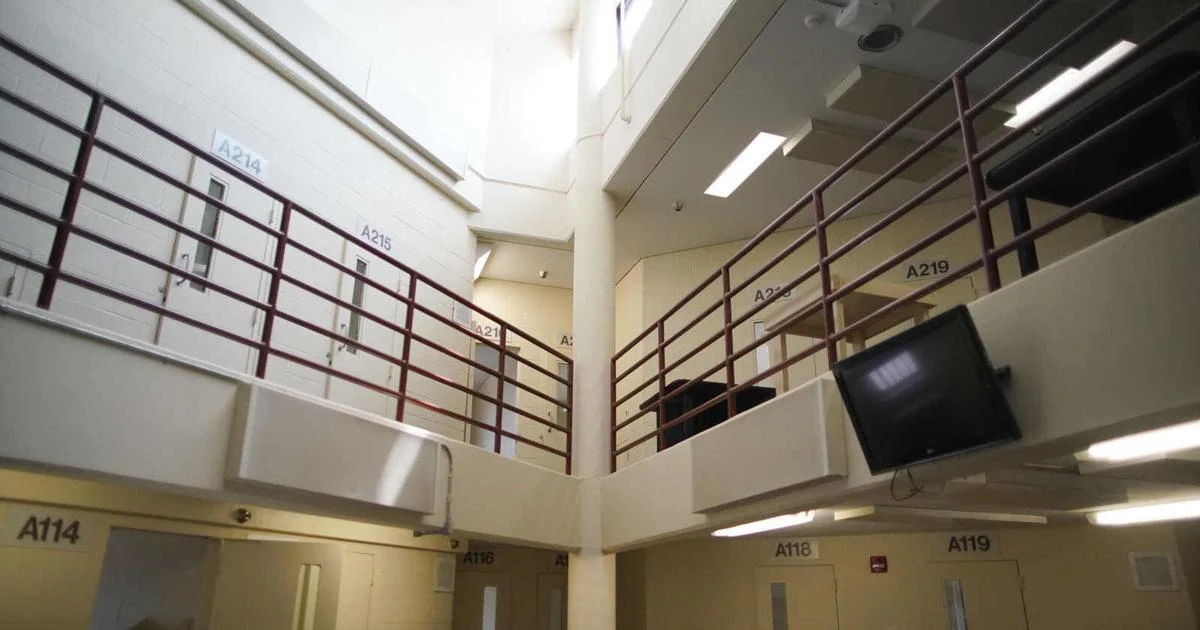
Keeping Erie County’s two jails properly staffed is an ongoing struggle.
Erie County added 47 new jobs to the staff of the Holding Center and Erie County Correctional Facility in 2023, but most of them are unfilled. In fact, the jails have more than 50 deputy and corrections officer vacancies.
Even when the jails are fully staffed, they don’t stay that way for long. Despite the generous pay and benefits and a low bar for entry – only a high school education is required – many find the idea of spending a career working behind bars unappealing. Those who do work there leave or retire. And stressed out deputies and corrections officers still making their careers there are taking increasing amounts of medical and family leave to cope with the burden.
To combat that, the Sheriff’s Office is launching a study to see whether having jail deputies and corrections officers work 10-hour or 12-hour shifts might make things easier for everyone. The Erie County Legislature is poised to approve allowing the Sheriff’s Office to spend up to $53,600 for a feasibility study that would examine what such a scheduling change might mean for those who currently work in the downtown Holding Center and Erie County Correctional Facility in Alden.
“Obviously, our personnel problem with respect to the jails is something that we want to address,” said Sheriff’s Office spokesman Chris Horvatits, “not just for the financial reasons, but for employee wellness reasons.”
A new civil service exam for anyone interested in becoming a jail deputy or corrections officer will be held next month to recruit more staffers. The deadline to sign up for the next exam is Oct. 3.
Sheriff’s Office officials pointed out that a third of all Holding Center deputies are working under family medical leave policies or have other long-term leave exceptions that have restricted the Sheriff’s Office ability to evenly distribute shift assignments or demand overtime of those employees.
The current standard shift is eight hours, but overtime needs and forced overtime requirements can turn short shifts into very long ones. The lack of predictable time off and the difficulty for younger jail staffers to get any weekends off hurts recruitment and retention efforts, officials said.
Sheriff John Garcia said the two county jails had finally reached full staffing during early summer of this year. But Horvatits said more people have left since then with three dozen current vacancies across the two jails − 24 at the Holding Center and 12 at the Correctional Facility.
Staffing issues have also been made more difficult over the past six months with the county’s housing of a higher number of state inmates because the state prison system can’t transfer them to state custody fast enough due to the state’s own prison staffing shortages.
Listen now and subscribe: Apple Podcasts | Spotify | RSS Feed | SoundStack | All Of Our Podcasts
The strike by state corrections officers in February may have ended in March, but the chronic problem of understaffing in the state prison system continues to create serious burdens for county jails in Erie County and across the state.
The concept of moving to 12-hour shifts has been controversial in the past, sometimes pitting younger employees against older ones.
In 2017, the county’s emergency 911 call takers and dispatchers moved to a 12-hour shift schedule that ensured that no staff member works more than three days in a row and guaranteed every other weekend off, sharply reducing or eliminating forced overtime. Prior to the county’s negotiated agreement with the county’s white-collar union over the scheduling change in 2016, members were divided over the proposed adjustment.
Earlier that summer, 20 of 26 emergency call-takers and dispatchers in Central Police Services signed a letter demanding the right to vote on a 12-hour shift schedule. That is similar to what county ambulance and sheriff’s dispatchers had moved to earlier in the year, in which no employee is scheduled to work more than two or three days in a row. But veteran employees who were grandfathered under an older schedule that limited them to working five eight-hour days a week opposed the scheduling change.
The agreement was ultimately adopted. Horvatits said the goal of the sheriff’s feasibility study is to see if they can produce a new scheduling proposal that may garner union support.
“We’ve been in communication with both unions about it,” he said of the unions representing both sets of jail personnel.
Calls to the Teamsters union representing Holding Center deputies, and the Civil Service Employees Association union representing corrections officers at the Alden facility, regarding the feasibility study were not returned.
The Sheriff’s Office road patrol officers and Buffalo Police Department officers already work under a 12-hour shift scheduling system, Horvatits said.
“Our job is extremely stressful and demands 100 percent of our attention at all times,” stated a letter sent to the Legislature. “If we make a mistake, lives could be lost … and we are held
As a former member of the Buffalo Police Department, Garcia would be familiar with the impact of a 12-hour scheduling system, which is often considered in organizations that suffer from chronic understaffing.
The funding for the current study, which would examine the impact of a shift change to either a 10-hour shift or a 12-hour shift, is coming from revenues received from jail telephone use. The county would contract with Matrix Consulting Group, one of three firms who bid on the project. The California-based organization specializes in data analysis and consulting for local and state governments. It was the lowest responsible bidder of three companies that bid on the work.
Once the contract with Matrix is signed, the study is expected to be completed within 90 days.
In the meantime, the Sheriff’s Office is sending another group of recruits to the academy and issuing a call for more people to take the civil service exam, which does not require the completion of a sit-down test but rather the completion of a “training and experience” questionnaire. The deadline for signing up to take the exam is in two weeks, on Oct. 3, with the exam being open from Oct. 11 to 26. More information can be found at governmentjobs.com/careers/erieco.
Get local news delivered to your inbox!
Subscribe to our Daily Headlines newsletter.
* I understand and agree that registration on or use of this site constitutes agreement to its user agreement and privacy policy.
Sandra Tan
Reporter
Get email notifications on {{subject}} daily!
Your notification has been saved.
There was a problem saving your notification.
{{description}}
Email notifications are only sent once a day, and only if there are new matching items.
Followed notifications
Please log in to use this feature
Log In
Don’t have an account? Sign Up Today



